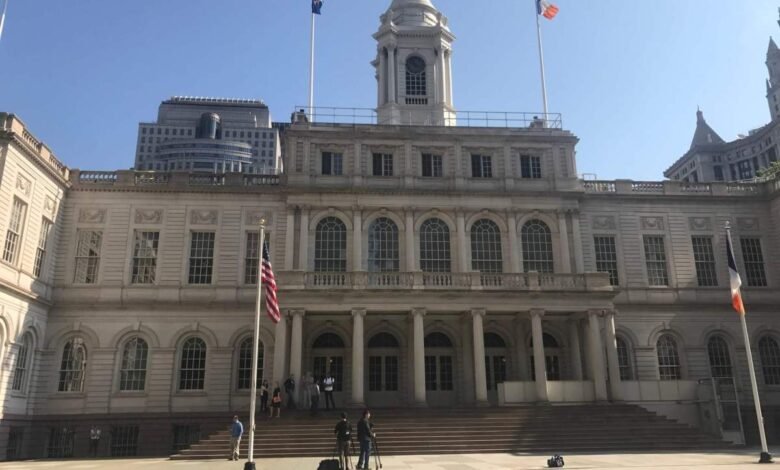
The City Council on July 18 passed multiple pieces of legislation, including a bill to expand the city’s rapid STI testing locations and a separate effort calling for greater transparency on school dress codes in New York City in light of concerns that existing policies have had a disproportionately negative impact on LGBTQ students and students of color.
The legislative effort to improve rapid STI testing infrastructure in New York City would require the city’s Department of Health and Mental Hygiene to offer rapid STI services in at least four of the city’s five boroughs. The Department of Health would determine the locations of the rapid testing sites and report back to the Council on the justification behind those particular spots, according to the City Council. The Department of Health would lead an awareness campaign to inform community members about the locations and availability of those sites. The city would need to return to the Council every three years to report on the availability of rapid STI testing.
The legislation was led by Councilmember Pierina Sanchez, who said in a written statement that inequities in STI rates since the onset of the COVID-19 pandemic have “most harshly impact[ed] New Yorkers at the intersection of Black, Latino, low-income and LGBTQ+ communities.” It was co-sponsored by dozens of city lawmakers, including LGBTQIA+ Caucus Co-Chairs Erik Bottcher of Manhattan and Tiffany Cabán of Queens.
The city has taken years to get back on track with STI testing after closing multiple sexual health clinics in the midst of the pandemic. Two of the city’s sexual health clinics — Crown Heights and Riverside — remain closed, according to the city’s online website. As of now, rapid testing is only available at two clinics, which is less than half of the amount of clinics that would be required to be open under the new legislation.
In 2022, New York City saw a slight increase in new HIV infections among men who have sex with men. While not exactly the same as new infections, there were 1,624 new diagnoses in 2022, 79% of which were men. Among them, 62% were men who have sex with men, and within that group, 82% were Black or Latinx, according to the city Health Department. Meanwhile, syphilis cases have increased by 74% since 2017, while gonorrhea went up by 28%, according to national data from the Centers for Disease Control and Prevention (CDC) in 2021. In New York City, chlamydia rates among men climbed by 13.2% between 2020 and 2021, while gonorrhea rates saw a 12.9% uptick.
“By expanding access to rapid STI testing in partnership with community-based organizations with the ability to reach the most impacted communities, we are taking an essential step in addressing horrific inequities in STI infection rates and investing in the long-term health of the people of New York City,” Sanchez said in a written statement. “It is time to ensure everyone has access to the life-saving services they need.”
On the same day, the Council approved a joint effort to address concerns about school dress codes and the unfair impact those policies can have on LGBTQ students and students of color. One of those two initiatives was a bill sponsored by Councilmember Diana Ayala of Manhattan and the Bronx requiring the Department of Education to publicly post dress code policies online and report on the dress code policies in the Department of Education’s schools for five years, according to the Council. The report must also note whether schools have dress codes and provide data on violations and penalties.
“Uneven dress code policies in New York City public schools have led to disproportionate discipline and consequences for students simply expressing themselves,” Ayala said in a written statement. “Students and families should have the opportunity to easily access any school’s dress code policy in a central location on the Department of Education’s website and determine if their individual schools’ policies are truly non-discriminatory and aligned with DOE guidelines. My hope is that this transparency will bring us towards consistent, inclusive and fair policies across our school system that do not unjustly target our students.”
The Council also passed a separate but related resolution calling on the city’s Department of Education to establish an inclusive school dress code policy that is in compliance with Title IX and accounts for diverse cultures, gender expressions, and body diversity, according to the Council. That resolution was championed by Councilmember Althea Stevens of the Bronx.
Council Speaker Adrienne Adams praised city lawmakers for taking action to bolster rapid STI testing and address school dress code policies.
“Expanding health services to meet the needs of New Yorkers in their communities has always been a priority for this Council,” Adams said in a written statement. “With the passage of today’s legislation, more residents will soon have greater access to rapid STI testing that can prevent unnecessary spread and transmission. The Council is also taking steps to help address inequities within our public school system’s dress code policies, a concern raised by youth advocates as part of the Council’s Young Women’s Initiative 2.0. By requiring greater transparency and calling for inclusivity in the dress code, our legislation can help advance anti-discrimination protections that support all students.”
Gay City News has reached out to the mayor’s office for comment and is awaiting a response.




